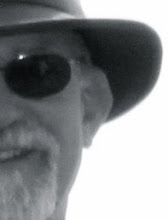I look into the mirror this morning as I shave and wonder about Shelley. He was born 218 years ago today. I wondered if he watched his dad, Tim, take the open razor to his face over a steaming bowl of water straight from the hob. That's how my grandfather Tom started his day, only he carried the water from the bog himself the day before. I helped him do it, so I know. How quiet was the mouth of the shiny steel pail as it drank the surface water, careful to avoid bits of moss and peat. My grandfathers were born a hundred years after Shelley and I doubt they'd heard of him, but they would have liked him I feel, as long as we didn't bring up the atheism and a few essays written to the Irish people when the poet was 19, visiting the country.
Unless you're utterly focused on leprechauns and tweed jackets, it's hard not to notice how fresh the blood shed for Ireland's liberty. Right there in Dublin's Sráid Uí Chonaill, or O'Connell Street, one of the widest streets in all of Europe, you can see where the bullets chipped away at the columns of the GPO. From Parnell to Larkin, the politicos are well represented in granite or bronze. And the Nelson Pillar blown up by radicals 44 years ago? It was replaced with The Spire of Dublin, said to be the world's largest sculpture. When I visited Kilmainham Gaol at our youngest daughter's insistence a few years ago, we were both struck by the prison's sense of monument or memorial to Irish rebels.
Shelley was convinced you could do this without bloodshed. This is unusual. His friend Byron thought otherwise, which is why Byron's pistols now occupy a place of honor in Greece's Benaki Museum.
I was visiting my cousin Annette and her husband Rodney in Eastbourne, back in 1970, and came across Shelley for the first time. I liberated a 1907 Complete Poetical Works for 15 shillings or 75 pence. England's currency being in transition that year, both prices are still penciled inside the cover. When I first started researching at the British Museum's Reading Room, I was tickled to see some of the books delivered wore a ribbon to keep the book intact. Now there's a red ribbon holding my old Shelley together, the cover having come adrift who knows when, during one of our moves between England and Hawai'i. Only this morning does the ribbon's color leap out at me.
The thing is, my dear, dear Shelley, sometimes we cut ourselves shaving.
Even today, many people think of Shelley as a lyric poet, when he was in truth a radical thinker who was not afraid to speak out. He was suppressed, if anything. Poets like Matthew Arnold called him a minor poet with no influence. Meanwhile the list of devotees is long and formidable, among them Karl Marx, Bernard Shaw, Bertrand Russell and Krishnamurti. His behavior, the way he abandoned Harriet and kept Mary pregnant while apparently diddling Claire, etc., etc., is reprehensible but as my mentor once said, forgivable in a poet.
"Love is free; to promise for ever to love the same woman is not less absurd than to promise to believe the same creed; such a vow in both cases excludes us from all inquiry."
My compassion for those around him, especially his families, grows as I grow older. But I have no patience with those who would keep him a trivial fancifier of words. I find myself siding with those who feel Shelley was assassinated. He was dangerous.
"Government is an evil; it is only the thoughtlessness and vices of men that make it a necessary evil. When all men are good and wise, government will of itself decay."
"Poetry is a sword of lightning, ever unsheathed, which consumes the scabbard that would contain it."
His "Defence of Poetry" should be mandatory reading.
The fact that I'd forked out 15 bob for Shelley's poems, sacrificing a few meals in the process, made an early impression on my mentor. We had Shelley in common and decades of friendship were founded on Shelley's work. My mentor's favorite was "Hymn to Intellectual Beauty," particularly the fifth and sixth stanzas,
"V
...When musing deeply on the lot
Of life, at that sweet time when winds are wooing
All vital things that wake to bring
News of birds and blossoming,——
Sudden, thy shadow fell on me;
I shrieked, and clasped my hands in ecstasy!
VI
I vowed that I would dedicate my powers
To thee and thine——have I not kept the vow?
With beating heart and streaming eyes, even now
I call the phantoms of a thousand hours
Each from his voiceless grave: they have in visioned bowers
Of studious zeal or love's delight
Outwatched with me the envious night——
They know that never joy illumed my brow
Unlinked with hope that thou wouldst free
This world from its dark slavery,
That thou——O awful LOVELINESS,
Wouldst give whate'er these words cannot express."
Subscribe to:
Post Comments (Atom)

























No comments:
Post a Comment